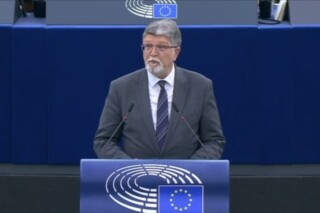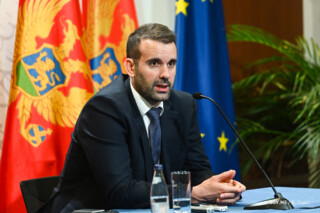For now, Croatia is the last country to have entered the EU. Despite all the hiccups on its European path, Croatia was accepted as EU member, outside some negotiation package. That happened once earlier, in case of Greece. Those examples show that Brussels can assess candidate countries on the basis of their own merits. Therefore, it is logical that the same will go for Montenegro and Serbia and other WB countries – says in the interview for Pobjeda, Mr Tonino Picula, European Parliament Rapporteur for Montenegro.
How is Montenegro dealing with coronavirus pandemic and are measures taken enough to maintain the stability of the economic system?
Relatively favorable circumstances in Montenegro in this difficult situation are result of two things. On one side, the fact that the first case of coronavirus was reported relatively late compared with other countries. On the other side, Montenegro immediately started application of precautions which resulted in still very good figures.
As far as I know, Montenegro will soon start to ease restrictions and I hope it will go slow and gradually.
Value of the macroeconomic package called Team Europe amounts to €3 billion, €60 million of which are intended for Montenegro.
Additional €8,4 million have been earmarked for helping healthcare system in Monetengro starting from 2021.
The EU has proven its solidarity with Montenegro. It has donated €3 million for urgent help to healthcare system and additional €50 million for long-term program, in accordance with needs. Do you think this help could have come sooner?
That question brings up one of the actual subjects coronavirus pandemic has brought into surface. I think the pandemic has shown that the entire set of European mechanisms reacts very slow in initial phases of crises. It has also turned out that those mechanisms are not effective, subject to bureaucratization and give possibility to national governments to behave in non-European way. At the very beginning of the crisis, solidarity lacked and that’s when everybody became aware of the scope of this scourge. Measures to help most affected countries are being upgraded gradually and are likely to suffice. However, I think in future we can do much more.
Measures need to be overarching in order to strengthen European project in the 21st century, instead of making differences between richer and poorer members more visible.
What kind of EU awaits us after the pandemic?
I was truly happy about the news that Montenegro offered help to the EU Member states at the beginning of its crisis. That was a very strong expression of solidarity and it must not be forgotten.
There are a lot of things indicating that pandemic will significantly change our lives and habits.
Some say that the pandemic won’t drastically change the world order but it will just accelerate some trends. Due to the fact that the EU is not a joint state bit a community of sovereign states, it has that rooted shortcoming of not being able to respond to crisis as a federal state. On the other side, it enables it to adopt balanced decisions taking into consideration interests of every member. I believe we need to upgrade existing European crisis mechanisms and agreement on the EU, which would provide to distribute burden of the crisis with more solidarity.
Region had many problems before coronavirus. It is best seen now that this part of Europe still has no strong guidelines on where to go. Serbian president seized on the pandemic to prove that China and Russia are his main partners. Can such Serbia’s leadership blur the European perspective of the WB?
Let’s set this problem like this: For now, Croatia is the last country to have entered the EU. Despite all the hiccups on its European path, Croatia was accepted as EU member, outside some negotiation package. That happened once earlier, in case of Greece. Those examples show that Brussels can assess candidate countries on the basis of their own merits. Therefore, it is logical that the same will go for Montenegro and Serbia and other WB countries. In accordance with the new negotiation methodology, countries will be assessed individually, depending on their ability to fulfill negotiation tasks. Serbia is at the beginning of EU membership negotiation process and it has accepted that, with time, it will have to harmonize its foreign policy with the joint foreign and safety policy of the EU.




